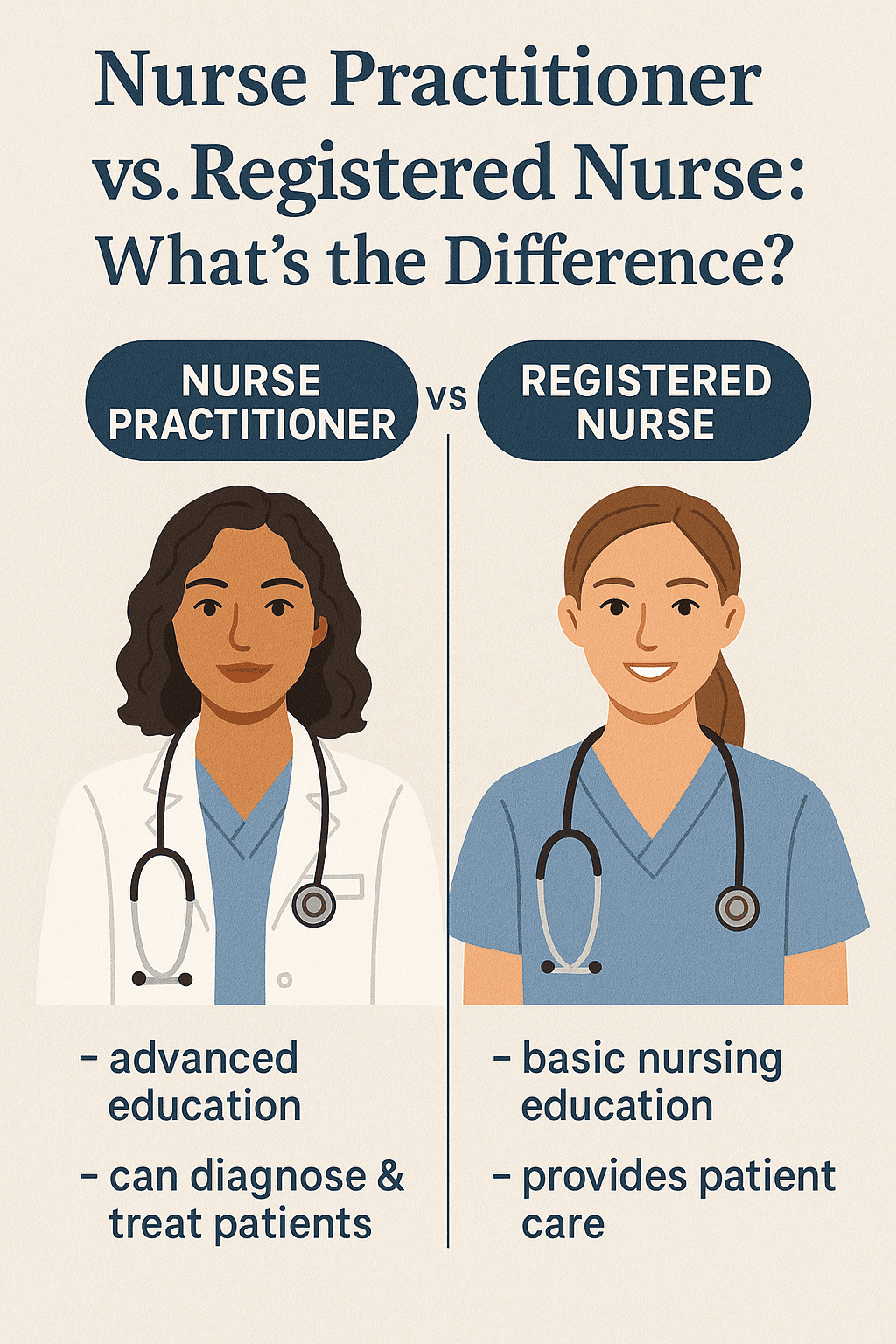If you’re pursuing a healthcare career or considering advancing your role as a licensed caregiver, you’ve likely encountered the terms Nurse Practitioner (NP) and Registered Nurse (RN). While both professions are essential in patient care, they differ significantly in terms of education level, clinical responsibilities, scope of practice, and earning potential.
Understanding these differences can help you make a more informed career choice in the ever-evolving healthcare landscape.
What Does a Registered Nurse Do?
A Registered Nurse provides direct care in various settings such as hospitals, outpatient clinics, long-term care facilities, and home health environments. Their responsibilities include:
- Monitoring patient conditions
- Administering treatments and medications
- Supporting diagnostic procedures
- Assisting physicians during exams or surgeries
- Educating individuals and families on health management
Educational Pathway for RNs:
To become an RN, one typically completes either:
- An Associate Degree in Nursing (ADN) – usually takes 2 years
- A Bachelor of Science in Nursing (BSN) – typically 4 years
Upon graduation, candidates must pass the NCLEX-RN to obtain licensure.
What Is a Nurse Practitioner?
A Nurse Practitioner is an Advanced Practice Provider with graduate-level education, allowing them to offer services that are often similar to those of a primary care physician.
Core NP Duties Include:
- Diagnosing medical conditions
- Developing treatment plans
- Prescribing medications
- Ordering lab tests and interpreting results
- Managing chronic illnesses
- Providing preventive and wellness care
Training Requirements for NPs:
To become a Nurse Practitioner, one must typically have:
- A BSN degree
- A Master of Science in Nursing (MSN) or Doctor of Nursing Practice (DNP)
- Board certification in a chosen specialty (e.g., family practice, psychiatry, pediatrics)
- Advanced licensure from the state board
Main Distinctions Between the Two Roles
| Criteria | Registered Nurse (RN) | Nurse Practitioner (NP) |
|---|---|---|
| Education Level | ADN or BSN | MSN or DNP |
| Clinical Authority | Works under physician guidance | Can practice independently (varies by state) |
| Prescription Rights | Cannot prescribe medications | Authorized to prescribe in most U.S. states |
| Areas of Practice | General care, bedside support | Specialty-focused, including primary care |
| Annual Salary | Around $81,220 (BLS, 2024) | Roughly $125,900 (BLS, 2024) |
| Decision-Making Power | Supportive, collaborative role | High autonomy, especially in full-practice states |
Is a Career as an RN or NP Right for You?
Choosing between these two paths depends on your career goals, educational commitment, and desired clinical responsibility:
- Opt for the RN route if you wish to enter the healthcare field quickly, enjoy hands-on patient interaction, and prefer working collaboratively within a medical team.
- Pursue the NP pathway if you’re aiming for a more independent role, higher compensation, and the ability to diagnose and treat without direct physician oversight.

